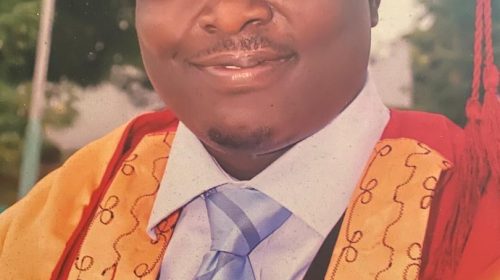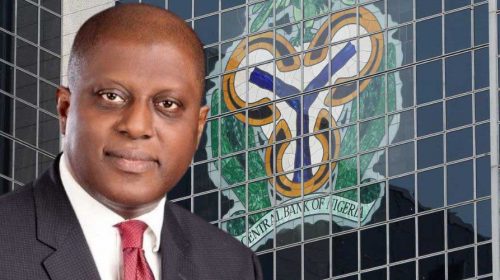Promoting, Protecting, fulfilling Human Rights Of Girls, women With Disabilities

Title: Mobilizing Grassroots Disability Rights Movements for the 2025 Global Disability Summit
In recent years, global platforms such as the Global Disability Summit (GDS) have become critical avenues for advancing disability rights, especially for marginalized groups within the disability community. As the 2025 GDS in Berlin recently concluded, the support from organizations like the Disability Rights Fund (DRF) is playing a transformative role in mobilizing grassroots disability rights movements worldwide. These efforts are particularly evident in Nigeria, where the DRF’s support has been instrumental in galvanizing national momentum towards the deposition of the Nigerian government’s commitments at the 2025 GDS.
At the heart of this mobilization is the active participation of Organizations of Persons with Disabilities (OPDs), with the Joint National Association of Persons with Disabilities (JONAPWD) serving as the lead coordinating body in Nigeria. In positioning the country’s marginalized disability groups for greater representation at the 2025 GDS. The DRF’s support has empowered these OPDs to engage in collaborative advocacy actions that bring attention to the needs of the most marginalized persons with disabilities, including individuals with intellectual disabilities, psychosocial and mental health conditions, leprosy, albinism and others without undermining the gender and children perspectives.
In Nigeria, the DRF’s support has been crucial in strengthening the capacity of OPDs to organize advocacy campaigns, engage with policymakers, and ensure that the voices of all persons with disabilities are heard. This support has been especially significant for marginalized groups within the disability community who have historically been sidelined in disability advocacy efforts. Through DRF funding, OPDs in Nigeria have been able to access resources and training that enhance their advocacy skills, helping them to negotiate with government bodies, international organizations, and other stakeholders effectively.
The Joint National Association of Persons with Disabilities (JONAPWD) has played a central role in coordinating the efforts of OPDs in Nigeria. As the umbrella organization representing persons with disabilities in the country, JONAPWD has been at the forefront of mobilizing disability rights campaigns and ensuring that the Nigerian government prioritizes disability inclusion in its policies. With the support of the DRF, JONAPWD has worked tirelessly to organize national consultations, meetings, and workshops that bring together representatives from various disability groups to discuss and refine their demands for the 2025 GDS.
JONAPWD’s efforts have been instrumental in drafting the Nigerian government’s commitments to the 2025 GDS, ensuring that these commitments reflect the priorities of persons with disabilities, particularly those from marginalized groups. The preliminary actions of the Albinism Association of Nigeria (AAN) efficiently facilitated collaboration among disability groups, creating a unified voice that demands comprehensive policies for inclusion, accessibility, and equality for all marginalised persons with disabilities in Nigeria.
As the core omnibus organization of the Nigeria Government, The National Commission for Persons with Disabilities (NCPWD) has also played a crucial role in facilitating the efforts of JONAPWD and other OPDs to ensure that the voices of persons with disabilities are heard in the drafting and depositing of Nigeria’s commitments to the 2025 GDS. The NCPWD has provided a platform for these organizations to engage with key government stakeholders, facilitating dialogues that ensure Nigeria’s commitments to the GDS reflect the needs of all disability groups, including those that are most marginalized. By amplifying the voices of these groups, the disability rights movement in Nigeria is setting a precedent for the inclusion of all persons with disabilities in global disability discussions.
On 2-3 April 2025, world leaders, international activists and policymakers gathered in Berlin for the Global Disability Summit (GDS).
Speakers included H.E. Olaf Scholz Federal Chancellor of the Federal Republic of Germany; H.M. King Abdullah II bin Al Hussein,
King of the Hashemite Kingdom of Jordan; UN deputy secretary-general Amina J Mohammed, and World Health Organization director-general Tedros Adhanom Ghebreyesus.
Declaring the Summit opened, the German Chancellor said “As a token of our resolve, we will – for the first time – agree on a specific funding target: “Fifteen percent for the fifteen percent” is the message of the Amman-Berlin Declaration on Global Disability Inclusion. Actors endorsing the declaration commit to making their international development programmes inclusive and accessible to persons with disabilities”.
Over one billion people worldwide, more than 15% of the global population, live with some form of disability. The Summit was a platform for dialogue, collaboration and, most importantly, for action. In attendance were 4,000 participants from100 nations with a single goal: to improve the situation of people with disabilities around the world.
Key pillars of the commitments made by Nigerian government at the summit includes – inclusive employment, inclusive humanitarian action, inclusive education, health equity, inclusion in digital information/communication, community inclusion and deinstitutionalisation, inclusive climate action, accessible infrastructure, legal capacity and social protection, financing for disability inclusion and role of the private sector in advancing inclusion of persons with disabilities.
As a practise, the 2025 GDS will not be the end of the road for disability rights advocacy in Nigeria; rather, it will mark the beginning of a new phase of accountability and action. The DRF’s support for grassroots disability movements in Nigeria has not only facilitated the country’s participation in the GDS but also laid the groundwork for post-GDS advocacy efforts.
One of the key mechanisms for post-GDS accountability will be the continued collaboration among OPDs, the NCPWD, and the Nigerian government. The DRF has empowered OPDs to monitor the implementation of the government’s commitments to disability rights, ensuring that these commitments are not just symbolic but are translated into concrete actions on the ground. Additionally, OPDs will continue to advocate for the rights of marginalized disability groups, holding the government accountable for ensuring that policies and services are inclusive and accessible to all.
Through these efforts, OPDs in Nigeria are poised to create lasting change for persons with disabilities, particularly those from marginalized groups. The DRF’s support will continue to be a crucial factor in sustaining momentum and ensuring that Nigeria’s disability rights agenda remains at the forefront of national and international discussions.







Leave a Reply